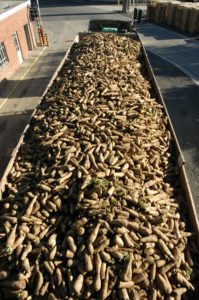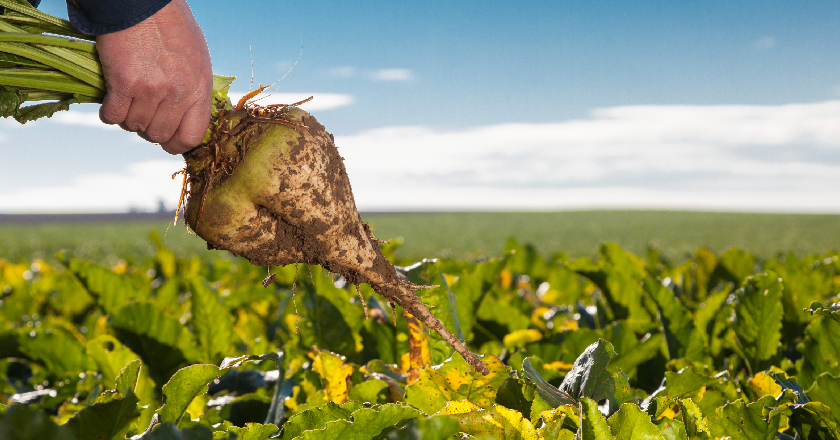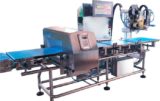
“The food industry is crisis-proof” as “people always eat” is a common perception. And while it’s true that there are many business sectors much more severely affected by restrictions resulting from the COVID-19 pandemic, companies in the food and beverage industry also face challenges: It’s about raw material security in times of closed borders, it’s about the health of employees. What about ingredient manufacturers? IDM asked Claudia Meissner, Head of Corporate Communication at BENEO, one of the leading companies in the field of functional ingredients, for her thoughts.
IDM: Claudia Meissner, how many video meetings have you had today?
Meissner: Well, you’re number 5 today! But honestly, I am used to it now, after more than two months down the line – just like about 60 other employees at our site in Mannheim and many more at all our sites in the world. We started home-office very early on. This was mainly to reduce the risk of infection, but also to enable our colleagues to balance childcare including home schooling and work schedules in times of schools and kindergartens closing. But of course, this is primarily a solution for employees in administrative roles.
IDM: What is the situation with employees working in production?
Meissner: Here, the triad of social distancing, increased hygiene and protection applies. At a very early stage of the pandemic, increased hygiene measures were introduced. We ensured that protective materials, such as masks and gloves, were available and used correctly. To ensure social distancing, we have, amongst other things, changed shifts and rotations, and re-arranged work areas in the factories using Plexiglas separations, coloured stickers on the floor, etc.
IDM: And the biggest challenges?
Meissner: Not so easy to pin-point ‘the biggest’ challenges – you will get different answers from the different functions and locations. To keep our colleagues healthy and safe was the ever-present goal in all challenges we experienced so far and since this needs to be done in a locally relevant way, there is no ‘one size fits all’ solution. The sentence ‘think global and act local’ has never been more valid. From an overall perspective there are a couple of main areas of challenge worth mentioning though: Keeping production running with a much higher work intensity regarding shift systems, on-site organisation of protection and safety gear but also signage etc. Sometimes even the need to do the same work with less people and at the same time managing a higher demand. Then there is the global aspect of logistics; containers being hold back in Asia and not arriving e.g. in Chile in time or in sufficient number, at the same time road blocks so trucks need to calculate much more time for their distances sometimes cannot calculate at all.
IDM: Agriculture in particular had to deal with the loss of harvest workers. Closed borders prevented access to markets, raw materials and workers. What is the situation with BENEO?
Meissner: Luckily, we have not yet experienced any shortage of raw materials. However, like many other industries, we are dealing with some logistical challenges, such as fewer containers and reduced shift work at harbours. We have also needed a strong, combined team effort to coordinate harvesting in Chile. There, our harvest season began at virtually the same time the country went into lockdown as a result of the pandemic. However, despite this, we are happy to say that things are currently running to plan thanks to the incredible efforts of our teams on-site.

Like many other companies BENEO had to deal wit logistical challenges
IDM: Many companies see this crisis as an opportunity – what are you taking as learnings from this period?
Meissner: A key learning for us is that swift alignment between stakeholders is essential to implement the necessary measures quickly and effectively. The impact of the pandemic has been mitigated for our business by the quick agreement of various stakeholders on the best way to proceed, helping us to define, decide and take action promptly. For us as a globally operating company, it is important to monitor the different national rules and respective regulations. Here, we have really benefited from having a defined crisis team at a global and local level.
IDM: The high level of food sales in particular has made the food industry a winner in the current situation – but has consumer perception of food changed too?
Meissner: The high demand for food has settled already, and stockpiling has decreased significantly even now. What will remain in the long-term is heightened consumer interest in healthy eating and increased attention to foods that are perceived as healthy, be they vegetables and fruits, organic products or functional foods. Topics such as immune health, staying fit and healthy are all front of mind at present. Latest figures show that almost three quarters of the consumers worldwide plan to eat and drink healthier as a result of the pandemic. This is a factor that will be hard to ignore by the industry when looking into new product development. However, this also means it’s about exploring ways to strengthen and improve existing solutions, such as natural and organic products, as well as those with functional or health benefits.
IDM: What other fundamental questions should the food industry be asking itself after the crisis?
Meissner: In crisis, attention is usually reduced to focus on the essentials – and that includes ensuring an uninterrupted food supply. After the crisis, a few things will have to be re-evaluated: How do we secure supply when borders are closed, how do we find a balance between global and regional sourcing, as we are doing at BENEO, for example, with production sites in different parts of the world. Already today, we’re seeing increased consumer interest in topics such as inner defence, staying fit and healthy, blood glucose control, as well as sustained energy. Alongside this, there is higher interest in science-based information, a trend which we believe is here to stay.
As a science-driven provider of functional ingredients, we are glad to see that the voices of scientists worldwide are being heard in in the public arena and, going forward, this can only be of benefit to consumers and the food chain alike.



